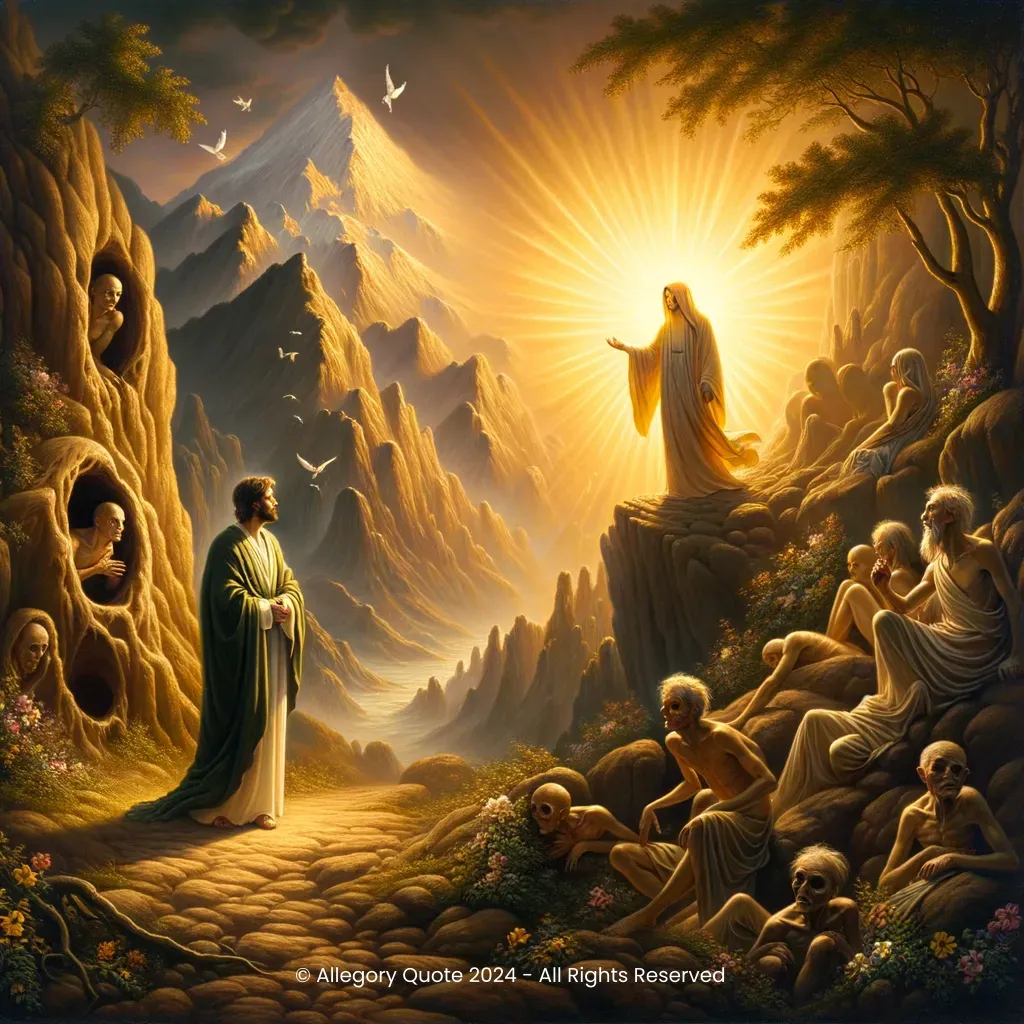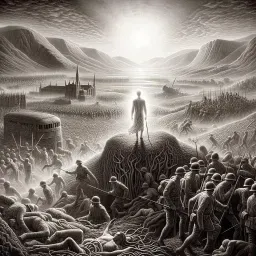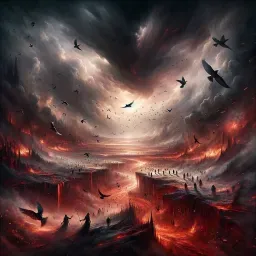”And I: 'Master, what is so heavy that
it makes them lament so strongly?'“

- Meaning
- In this verse, Dante, the poet and protagonist of the poem, addresses his master Virgil, asking for an explanation for the sorrowful lament of the souls they encounter during their ascent of the Mountain of Purgatory. The question reflects natural human curiosity and the desire to understand the sufferings of others. This moment is significant because it reinforces the themes of compassion and the pursuit of knowledge, which are central to Dante's work.
- Allegory
- In this representation, Dante symbolizes the human quest for truth and understanding, while Virgil represents wisdom and spiritual guidance. The souls in torment underscore the theme of suffering and redemption, while the rising sun symbolizes hope and the prospect of new knowledge. The surrounding natural elements evoke growth, life, and the process of purification, which constitute the central theme of Dante's Purgatorio.
- Applicability
- The meaning of this phrase can be applied in personal life as an invitation not to be indifferent to the suffering of others. Asking and wanting to understand others' pain can lead to greater empathy and, consequently, to more compassionate and humane behavior in our daily interactions.
- Impact
- "The Divine Comedy" is one of the masterpieces of world literature and has had an extraordinary impact on culture, art, literature, and philosophy. It has influenced countless writers, poets, and scholars, and continues to be studied and analyzed worldwide.
- Historical Context
- Dante Alighieri's "The Divine Comedy" was written between 1308 and 1320. During this period, Italy was fragmented into many communes and lordships, and Dante himself was exiled from Florence for his political positions. The work serves as an expression of his religious, moral, and political ideas.
- Criticisms
- There are no extensive critiques specifically for this verse, but the interpretation and translations of "The Divine Comedy" as a whole have often sparked heated debates among scholars due to its complex allegories and numerous theological and philosophical interpretations.
- Variations
- The phrase represents a universal concept and bears similarities to reflections from other cultures that emphasize the importance of understanding and empathy. For example, in Eastern traditions, the concept of "karuna" (compassion) in Buddhist philosophy emphasizes the importance of understanding others' suffering and acting to alleviate it.
-

In the midst of chaos, there is also opportunity.
-

And as the starlings are borne on their wings, in the cold season, in a broad and full troop, so does that blast bear the evil spirits along.
-

To err is human, to forgive, divine.
-

You were not made to live like brutes, but to follow virtue and knowledge.
-

There the dreadful Erichtho writhed, who summoned back the shadows to their bodies.
-

Abandon all hope, ye who enter here.
-

He had already reached the place where the roar of water falling into the next circle could be heard, similar to the buzzing of beehives.
-

O imagination, that sometimes steals us so, from outside things, that we pay no attention, though someone might be present who hears a bell or a horn, within you!
-

I saw such a long throng of people, I would not have believed death had undone so many.
-

Ah, how hard it is to describe this rough and harsh and dense forest, which renews fear in my thoughts!
-

To run upon better waters now hoists sail the little vessel of my genius, leaving behind itself a sea so cruel.
No Comments